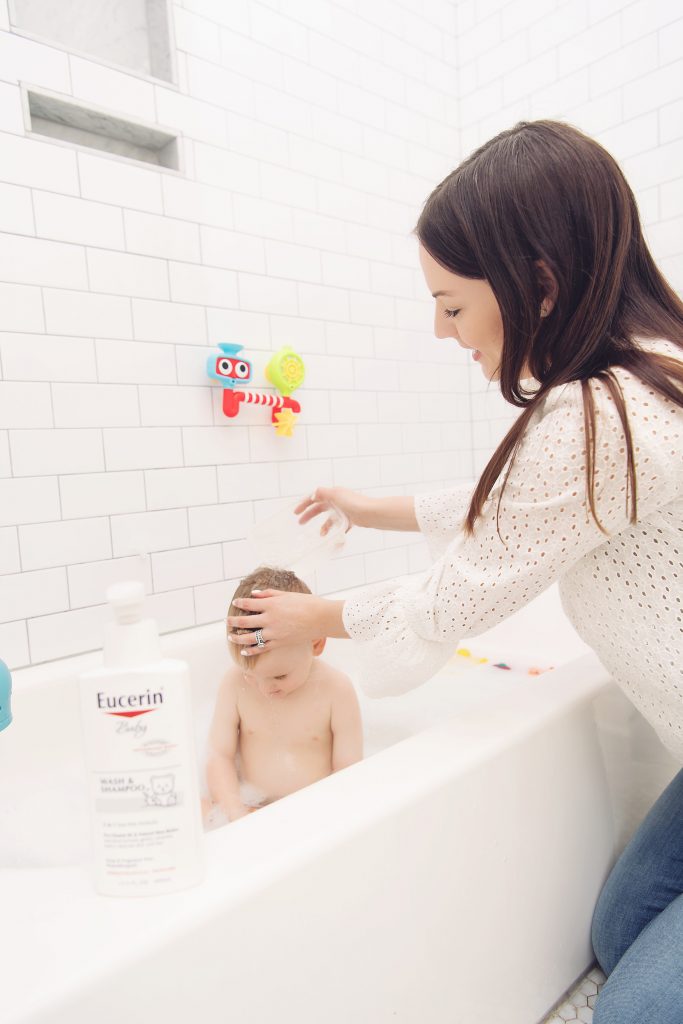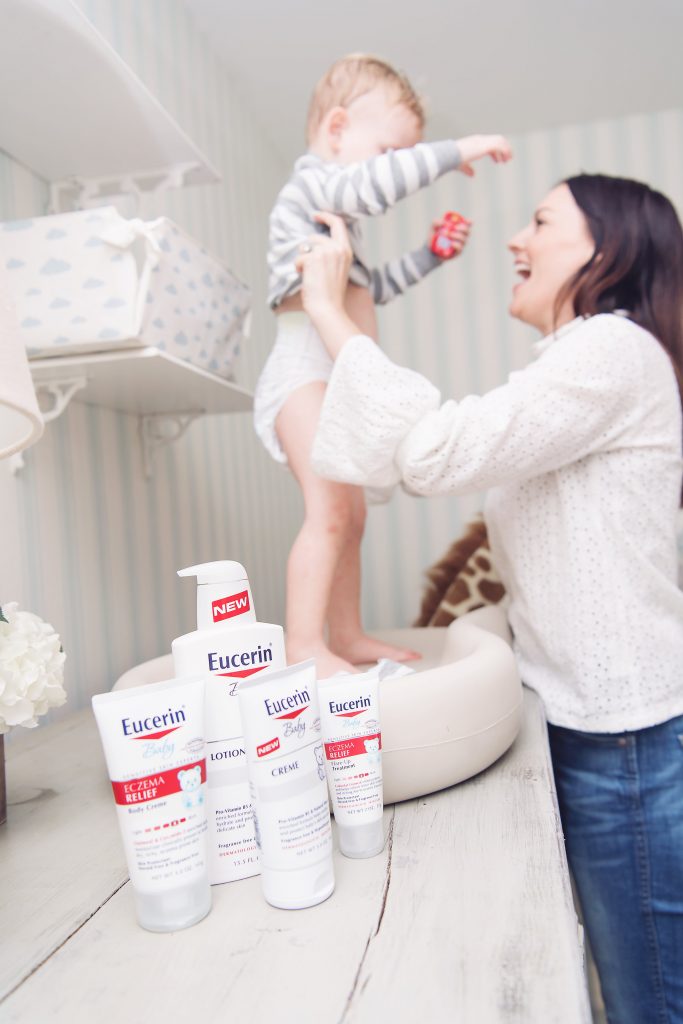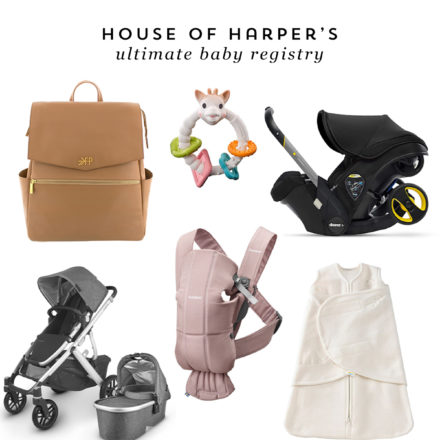
When I became a mom, my attention to product ingredients increased significantly. As many of you have experienced, your approach to many things — food, cleaning supplies, bath products — changes drastically when you are responsible for children and not just yourself anymore. With our youngest Andrew (2), my attention to products has heightened even more due to his allergies. After various reactions we finally learned from our doctor that he is allergic to sesame and egg (so now I’m the mom who always has vegan treats on hand!), and he also has eczema.
In addition to being uncomfortable, itchy, and sometimes painful, eczema can also lead to skin infections, so it’s important to treat and monitor. It’s a frustrating condition because there is not typically one “cure all” — it takes multiple approaches and time testing out different products. To make matters worse, eczema has a tendency to flare up in the winter due to dry air combined with indoor heating systems, so Andrew’s skin requires extra TLC this time of year.
It has been a learning process to figure out how to best soothe Andrew’s skin, and I wanted to share a few best practices that I’ve picked up along the way in case your child has eczema or dry, irritated skin. I’ve found that if you keep at it, you’ll settle into a routine that will help improve your baby’s skin. Read on below for five tips to help soothe your little one’s winter skin blues.

1. Know your child’s particular triggers to avoid exposure
It took a while to determine exactly what external factors cause Andrew’s skin to flare up and it is still a learning process. In the winter time, kids obviously spend more time playing indoors where the air is dry, which irritates sensitive skin. Paying attention to these small adjustments in schedules, daily habits, or products used (detergent, soaps, and moisturizers), is important in determining what is causing irritations. We have also noticed a huge correlation to Andrew’s diet and his skin. Certain foods (other than his actual allergies) cause his skin to flare such as cow’s milk (it also upsets his stomach) and overall poor diet. When we are eating clean at home, his skin is at his best. Keep a daily journal for a while recording foods, products, and habits that are a part of your child’s routine to sort out what might be causing or exacerbating the issue.

2. Implement a daily bathing and moisturizing routine
It’s important to note that not all moisturizers or bath products are created equal. This is where a lot of trial and error comes into play, but thankfully I’ve found that the Eucerin Baby Line is safe and effective for Andrew. Both the Eucerin Baby Eczema Relief Body Creme and Eucerin Baby Eczema Relief Flare Up Treatment Creme have been super helpful in soothing his dry skin and locking in moisture. We have found that daily warm baths (not too hot or too long) followed by immediate application of his creams work best. I felt confident using these products because Eucerin is the number one brand recommended by pediatricians for a baby’s delicate skin, and the products are paraben- and fragrance-free, so they are super gentle.

3. Adopt a skincare regimen and incorporate over the counter and prescription medication to curb symptoms as needed
I’ve discovered that having a consistent skincare regimen is crucial to minimizing the effects of Andrew’s eczema – just a few days off schedule can have immediate consequences. Create a daily routine, and checklist if needed, of products and practices that help your child’s skin, and stick to it! Depending on how severe your child’s condition is, you may need to see a dermatologist and incorporate over the counter and prescribed medications into your routine, as we have done with Andrew. Other complications can arise for irritable skin, including bacterial and viral infections, which you of course want to avoid at all costs!

4. Toss Out Certain Fabrics
Hot and sweaty skin directly triggers eczema. So you’ll want to avoid synthetic fabrics which don’t allow the skin to ‘breath’. Wool can also be itchy, so try removing that material from your child’s clothing, bedding, towels, etc. Your best bet is to go for 100% cotton when possible.

5. Use specialized sunscreen
You’ve most likely heard over and over again to slather your children with sunscreen, which is great! But make sure to use a specialized sunscreen if your child has skin irritations. Before summer is here, ask your dermatologist for a sunscreen recommendation that best suits your child’s needs. Living in Houston, we use sunscreen most the year on Andrew’s sensitive skin, but it took a few trial and errors before landing on the right one.
Do you have a child with sensitive skin? I would love to hear your recommendations in the comments below!
This post was brought to you in partnership with Eucerin Baby. Thank you for supporting the brands and partners we love at HOUSE of HARPER!










Leave your thoughts